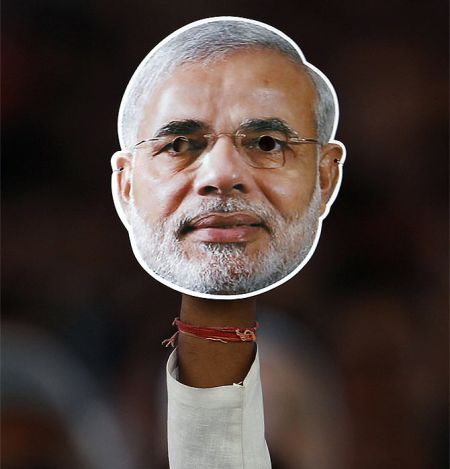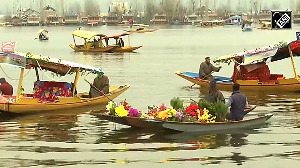 Despite holding 281 seats in the Lok Sabha, the BJP-led government has promulgated as many as six ordinances to pass legislation
Despite holding 281 seats in the Lok Sabha, the BJP-led government has promulgated as many as six ordinances to pass legislation
A year of the Narendra Modi-led National Democratic Alliance government has seen high productivity by Parliament. But anecdotal evidence suggests while the government has been efficient, the time lost to disruption (even in the Lok Sabha, where it has an impressive majority) was the same as in 2004, when a fractious coalition led by Manmohan Singh took to power.
Modi’s Bharatiya Janata Party is the first since 1984 to have been able to form a government on its own with a simple majority, with 281 seats. The BJP-led NDA government has the numbers in the Lok Sabha to pass any bill it wants to, as long as it is not a constitutional amendment (which requires two-thirds of the members).
Yet, the government has promulgated as many as six ordinances (temporary laws meant to be issued by the President at the request of the government when Parliament is not in session) on the grounds that “the country can’t wait” for Parliament to allow laws to be passed.
The government has before it two key hurdles. First, it doesn’t have the numbers to get the Rajya Sabha to do its bidding. With the NDA collectively having a tally of only 63 in the Upper House, all non-money bills could be held up there.
Second, the Opposition, especially the Congress, is determined to do to the BJP what the latter did to it in the last two years of the predecessor United Progressive Alliance regime. Therefore, disruptions, on statements made by members and ministers of the ruling coalition in or outside the House, are par for the course.
Prime Minister Narendra Modi’s frustration was clear when he advised the Rajya Sabha to pay heed to those who had elected him. “This is the Council of States. When many members were elected, the mood of the people was different; it has changed,” he said in March, after the results of assembly elections in Jammu and Kashmir and Maharashtra.
“The political situation has changed and so has the mandate,” he said. “Being the Council of States, the feelings of the state and of elected governments of states must be represented here. Along with the party one represents, it is important to also represent the government of the day in the state.”
“This House must respect the mandate of people and the expectations with which the people have elected a government. Along with criticism, for the sake of taking the nation ahead, it is our combined responsibility to cooperate,” the prime minister said. He also warned threats wouldn’t work with him, as he had lived with the threat of going to jail during the entire duration of the Emergency.
Much of the time lost in disruption has been on account of issues that have only a remote connection to the proceedings of Parliament or the exercise of making laws. The winter session of Parliament in 2014 was a virtual washout because of the words used by the BJP’s Niranjan Jyoti for those not from her political party. Despite being in a majority in the Lok Sabha, the government couldn’t prevent the disruption caused by the ghar wapsi (religious conversion and reconversion) issue that rocked the Lower House.
So concerned was President Pranab Mukherjee at this that he said in Chennai: “In my younger days, we were taught that the essence of democracy was 3D -- debate and discussion, dissent and finally, decision. But after I retired from Parliament, I find there is another D -- disruption of proceedings of the House.”
That said, parliamentary functioning in the past year has been among the most productive so far. As the prime minister recently told TIME magazine, with some pride, “In the Lok Sabha, productivity has been about 124 per cent, while productivity in the Upper House has been about 107 per cent. Overall, it conveys a very positive message of legislative action. In all, about 40 bills have been passed in Parliament. So, if you were to ask me whether you need dictatorship to run India, no, you do not.”












 © 2025
© 2025